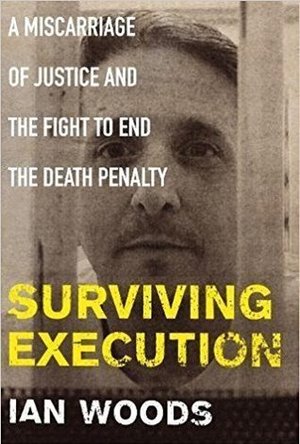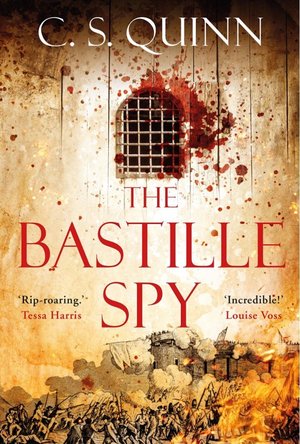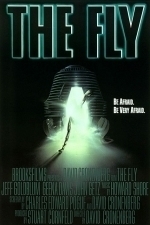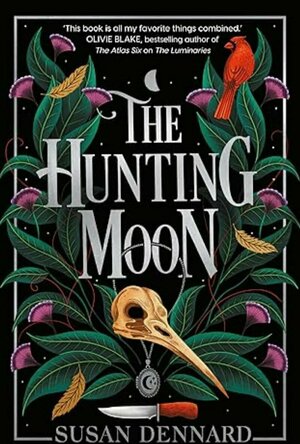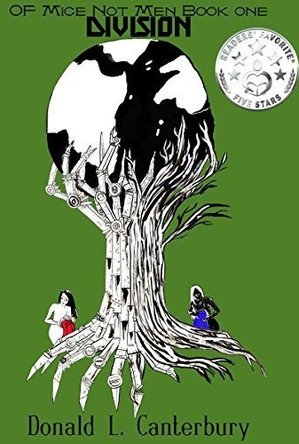Search
Louise (64 KP) rated Surviving Execution in Books
Jun 28, 2018
First off thank you to readers first for a copy of this book.
Surviving execution is the true story of Richard Glossip, a man who is on death row for a crime he never committed. Richard Glossip’s story is told by Ian Woods a UK Sky news reporter, Ian wanted to bring this to the UK’s attention of the miscarriage of justice and how capital punishment is not always as straight forward as it’s made out to be.
Richard Glossip was arrested for the murder of his boss and motel owner Barry Von Treese, however Richard was not the person that killed him but was implicated by Justin Sneed and the police who interviewed him. For this the man who actually murdered Barry Von Treese got life without parole whilst Richard gets the death penalty for being the supposed mastermind.
Richards Glossip didn’t start off well with a bad lawyer that was under qualified for this type of case and failure to bringing certain evidence to light was going to cost Richard his life. With multiple trials, appeals and stays you would hope this man would get some sort of break, however that’s not the case and shows how corrupt the police and the law can be.
Also this book tells us a bit about the history of Capital Punishment, the methods, the countries and also the abolitionists. Although this is non fiction it is really easy to digest and very much the page turner. It makes you question so many things and whether this should really still be carried out.
We also get an insight in to what Ian Woods is thinking as he is helping this mans case and whether he would or could witness the death of a man that he has come to know and call a friend. Ian tries to remain unbiased especially when asked if he thinks Richard is guilty which infuriates others helping with the case. This case got some high coverage as Richard Branson, Susan Sarandon, Sister Helen Prejean and even the Pope got involved.
I would really recommend reading this book if you are interested in true crime and capital punishment. Maybe just read this book so you can decide if the state of Oklahoma was correct in giving this man the death penalty.
Surviving execution is the true story of Richard Glossip, a man who is on death row for a crime he never committed. Richard Glossip’s story is told by Ian Woods a UK Sky news reporter, Ian wanted to bring this to the UK’s attention of the miscarriage of justice and how capital punishment is not always as straight forward as it’s made out to be.
Richard Glossip was arrested for the murder of his boss and motel owner Barry Von Treese, however Richard was not the person that killed him but was implicated by Justin Sneed and the police who interviewed him. For this the man who actually murdered Barry Von Treese got life without parole whilst Richard gets the death penalty for being the supposed mastermind.
Richards Glossip didn’t start off well with a bad lawyer that was under qualified for this type of case and failure to bringing certain evidence to light was going to cost Richard his life. With multiple trials, appeals and stays you would hope this man would get some sort of break, however that’s not the case and shows how corrupt the police and the law can be.
Also this book tells us a bit about the history of Capital Punishment, the methods, the countries and also the abolitionists. Although this is non fiction it is really easy to digest and very much the page turner. It makes you question so many things and whether this should really still be carried out.
We also get an insight in to what Ian Woods is thinking as he is helping this mans case and whether he would or could witness the death of a man that he has come to know and call a friend. Ian tries to remain unbiased especially when asked if he thinks Richard is guilty which infuriates others helping with the case. This case got some high coverage as Richard Branson, Susan Sarandon, Sister Helen Prejean and even the Pope got involved.
I would really recommend reading this book if you are interested in true crime and capital punishment. Maybe just read this book so you can decide if the state of Oklahoma was correct in giving this man the death penalty.
ClareR (5667 KP) rated The Bastille Spy in Books
Aug 1, 2019 (Updated Aug 1, 2019)
A very enjoyable historical spy adventure!
England’s best spy, in this novel set in only just pre-Revolution Paris (1789), is Attica Morgan. Yes, in a time where a woman was deemed to be the fairer, weaker sex, Attica is a ruthless, all-action spy in His Majesty’s Government. And I loved her.
I’ve no idea how likely this would have been, and largely speaking, I don’t actually care. This book is non-stop action, as Attica is asked to investigate the murder of a rebel in the Bastille. She sees how dangerous Paris is becoming, and how the French royal family really don’t care about their poorer subjects. Attica teams up with a Privateer/ Pirate to complete her mission - and I found myself wondering (and hoping - see point 2):
1. When the next book will be coming out*, and
2. Will he be in it!
*for the record, I know that this book has only just released, and I’m firmly of the opinion that authors should take as long as they want/ need to take over writing their books. Can’t help but want to see more of these fabulous characters though!
Attica’s backstory is fascinating: the bastard daughter of a British nobleman who has escaped from slavery, educated and brought up as a Lady, she is expected to marry to her family’s advantage (or to that of the Crown). Attica doesn’t really like playing by the rules though, and trains to be a spy - which sounds brutal, but prepares her for some pretty risky missions.
The French people generally, whether Royalists or Republicans, don’t come off terribly well. The Republicans all seem to be pretty bloodthirsty and immoral, the Royalists are ‘just’ immoral. So, happy days (I should also say here that I know lots of lovely French people who are neither immoral or bloodthirsty. Just to make that clear 😉)!
Have I said how much I liked this book? Because I really did. If you want a fun, exciting, historical fiction novel, then this will be right up your street. I’m definitely putting this in my ‘Look out for the next in the series’ watchlist (yes, I really do have one of those).
Many thanks to Jellybooks who provided me with a copy of this book to read and review all the way back in April 2019! I’ve had to try very hard to keep this under my hat since then!
I’ve no idea how likely this would have been, and largely speaking, I don’t actually care. This book is non-stop action, as Attica is asked to investigate the murder of a rebel in the Bastille. She sees how dangerous Paris is becoming, and how the French royal family really don’t care about their poorer subjects. Attica teams up with a Privateer/ Pirate to complete her mission - and I found myself wondering (and hoping - see point 2):
1. When the next book will be coming out*, and
2. Will he be in it!
*for the record, I know that this book has only just released, and I’m firmly of the opinion that authors should take as long as they want/ need to take over writing their books. Can’t help but want to see more of these fabulous characters though!
Attica’s backstory is fascinating: the bastard daughter of a British nobleman who has escaped from slavery, educated and brought up as a Lady, she is expected to marry to her family’s advantage (or to that of the Crown). Attica doesn’t really like playing by the rules though, and trains to be a spy - which sounds brutal, but prepares her for some pretty risky missions.
The French people generally, whether Royalists or Republicans, don’t come off terribly well. The Republicans all seem to be pretty bloodthirsty and immoral, the Royalists are ‘just’ immoral. So, happy days (I should also say here that I know lots of lovely French people who are neither immoral or bloodthirsty. Just to make that clear 😉)!
Have I said how much I liked this book? Because I really did. If you want a fun, exciting, historical fiction novel, then this will be right up your street. I’m definitely putting this in my ‘Look out for the next in the series’ watchlist (yes, I really do have one of those).
Many thanks to Jellybooks who provided me with a copy of this book to read and review all the way back in April 2019! I’ve had to try very hard to keep this under my hat since then!

Narcoland: The Mexican Drug Lords and Their Godfathers
Roberto Saviano and Anabel Hernandez
Book
Narcoland describes a disastrous 'war on drugs' that has led to more than 80,000 deaths in half a...
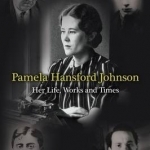
Pamela Hansford Johnson: Her Life, Work and Times
Book
This first biography of Pamela Hansford Johnson (1912-1981) has been written with the full...
Matthew Krueger (10051 KP) rated The Fly (1986) in Movies
Sep 10, 2020
Buzz Buzz
The Fly is a excellent remake of the 1958 version. Cronenberg does it again. All of his 80's films are excellent. I mean the gore, the violence, the horror, the suspense, the thrills, the sci-fi, the visuals, the terror and the acting.
The Plot: When scientist Seth Brundle (Jeff Goldblum) completes his teleportation device, he decides to test its abilities on himself. Unbeknownst to him, a housefly slips in during the process, leading to a merger of man and insect. Initially, Brundle appears to have undergone a successful teleportation, but the fly's cells begin to take over his body. As he becomes increasingly fly-like, Brundle's girlfriend (Geena Davis) is horrified as the person she once loved deteriorates into a monster.
The Fly was critically acclaimed, with most praise going to Goldblum's performance and the special effects. Despite being a gory remake of a classic made by a controversial, non-mainstream director, the film was a commercial success, the biggest of Cronenberg's career, and was the top-grossing film in the United States for two weeks, earning a total domestic gross of $40,456,565.
Film critic Gene Siskel named The Fly as the tenth best film of 1986. In 1989, Premiere and American Film magazines both conducted independent polls of American film critics, directors and other such groups to determine the best films of the 1980s, and The Fly appeared on both lists.
In 2008, the American Film Institute distributed ballots to 1,500 directors, critics and other people associated with the film industry in order to determine the top ten American films in ten different genre categories. Cronenberg's version of The Fly was nominated under the science fiction category, although it did not make the top ten. It was also nominated for AFI's 100 Years... 100 Thrills and AFI's 100 Years...100 Passions and Veronica's warning to Tawny in the film—"Be afraid. Be very afraid."—was nominated for AFI's 100 Years... 100 Movie Quotes.
The quote "Be afraid. Be very afraid." was also used as the film's marketing tagline, and became so ingrained in popular culture (as it—and variants—have appeared in countless films and TV series) that a large number of people who are familiar with the phrase are unaware that it originated in The Fly.
Its a excellent movie.
The Plot: When scientist Seth Brundle (Jeff Goldblum) completes his teleportation device, he decides to test its abilities on himself. Unbeknownst to him, a housefly slips in during the process, leading to a merger of man and insect. Initially, Brundle appears to have undergone a successful teleportation, but the fly's cells begin to take over his body. As he becomes increasingly fly-like, Brundle's girlfriend (Geena Davis) is horrified as the person she once loved deteriorates into a monster.
The Fly was critically acclaimed, with most praise going to Goldblum's performance and the special effects. Despite being a gory remake of a classic made by a controversial, non-mainstream director, the film was a commercial success, the biggest of Cronenberg's career, and was the top-grossing film in the United States for two weeks, earning a total domestic gross of $40,456,565.
Film critic Gene Siskel named The Fly as the tenth best film of 1986. In 1989, Premiere and American Film magazines both conducted independent polls of American film critics, directors and other such groups to determine the best films of the 1980s, and The Fly appeared on both lists.
In 2008, the American Film Institute distributed ballots to 1,500 directors, critics and other people associated with the film industry in order to determine the top ten American films in ten different genre categories. Cronenberg's version of The Fly was nominated under the science fiction category, although it did not make the top ten. It was also nominated for AFI's 100 Years... 100 Thrills and AFI's 100 Years...100 Passions and Veronica's warning to Tawny in the film—"Be afraid. Be very afraid."—was nominated for AFI's 100 Years... 100 Movie Quotes.
The quote "Be afraid. Be very afraid." was also used as the film's marketing tagline, and became so ingrained in popular culture (as it—and variants—have appeared in countless films and TV series) that a large number of people who are familiar with the phrase are unaware that it originated in The Fly.
Its a excellent movie.
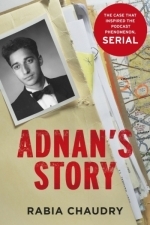
Adnan's Story
Book
'The first letter I received after being arrested in 1999 was from Rabia. Since that time until now,...
Crime true crime non-fiction
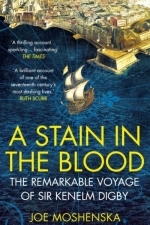
A Stain in the Blood: The Remarkable Voyage of Sir Kenelm Digby
Book
SHORTLISTED FOR THE JAMES TAIT BLACK PRIZE FOR BIOGRAPHY and THE ELIZABETH LONGFORD PRIZE FOR...
History
ClareR (5667 KP) rated The Hunting Moon in Books
Dec 12, 2023
When will I learn to check that books are a one off or the second in a series? I mean, it was a couple of chapters in before I realised something was off, but I have to admit that I quickly filled in the gaps, and it didn’t spoil my listening pleasure. I really enjoyed this.
The world of Hemlock Falls is an interesting one - shut off from the non-magical, they look down on them somewhat, but still feel compelled to keep them (and themselves) safe from the nightmares in the forest separating the two peoples.
We join Winnie Wednesday after she has passed the hunter trials, her family has been welcomed back into the Luminaries after being cast aside by them for some reason (in book 1, I believe!), and Winnie is now a local celebrity. Not that she’s enjoying it very much. She’s worried that everyone is passing her attacker off as a werewolf, and she’s pretty certain that it’s another creature called a Whisperer. And the Whisperer is still killing hunters every night.
There’s a bit of romance as well - Jay Friday, who seems to have his own problems that he doesn’t want anyone to know about, is making advances to Winnie, and she doesn’t mind one bit. He’s a nice boy (I sound like a mum here, I cannot deny I am one).
I listened to this on Bolinda Audio through NetGalley, and the narrator, Caitlin Davies reads the story so well. There’s nothing quite like a good narrator, adding value to a story and bringing a world to life. The feelings of the characters were conveyed so effectively that I felt fully involved.
I think this opens up a whole argument as to whether books should be sectioned off into age groups. I mean, this is YA, so aimed at 12-18, and I can’t for the life of me understand why? Perhaps I’m a simple soul. OK, there’s no sex, but I’ll be honest - I don’t want to read about sex all the time. It can get a bit boring (controversial, perhaps, but there’s my opinion!). And YA seems to do fantasy and science fiction SO WELL!!
So I’m off to read The Luminaries and fill in some gaps, because I loved this second in what I assume will be a trilogy.
The world of Hemlock Falls is an interesting one - shut off from the non-magical, they look down on them somewhat, but still feel compelled to keep them (and themselves) safe from the nightmares in the forest separating the two peoples.
We join Winnie Wednesday after she has passed the hunter trials, her family has been welcomed back into the Luminaries after being cast aside by them for some reason (in book 1, I believe!), and Winnie is now a local celebrity. Not that she’s enjoying it very much. She’s worried that everyone is passing her attacker off as a werewolf, and she’s pretty certain that it’s another creature called a Whisperer. And the Whisperer is still killing hunters every night.
There’s a bit of romance as well - Jay Friday, who seems to have his own problems that he doesn’t want anyone to know about, is making advances to Winnie, and she doesn’t mind one bit. He’s a nice boy (I sound like a mum here, I cannot deny I am one).
I listened to this on Bolinda Audio through NetGalley, and the narrator, Caitlin Davies reads the story so well. There’s nothing quite like a good narrator, adding value to a story and bringing a world to life. The feelings of the characters were conveyed so effectively that I felt fully involved.
I think this opens up a whole argument as to whether books should be sectioned off into age groups. I mean, this is YA, so aimed at 12-18, and I can’t for the life of me understand why? Perhaps I’m a simple soul. OK, there’s no sex, but I’ll be honest - I don’t want to read about sex all the time. It can get a bit boring (controversial, perhaps, but there’s my opinion!). And YA seems to do fantasy and science fiction SO WELL!!
So I’m off to read The Luminaries and fill in some gaps, because I loved this second in what I assume will be a trilogy.
Kara Skinner (332 KP) rated Of Mice Not Men in Books
Jun 12, 2019
Genre: Science Fiction, Non-Romance
Page Count: 350 pages
Average Goodreads Rating: 4.75 out of 5 stars
My rating: 3 out of 5 stars
After manmade natural disasters wiped out most humans and life around the world, war breaks out among the remaining humans. The faction called the Developers want to take the resources from Earth and leave the dying planet behind to join the stars. The Harmonizers want to stay and restore Earth’s resources. Both factions race to stop the other, using deadly, even sadistic measures. After all, the fate of the planet and the human race lies in the balance.
I had my ups and downs with this book to be sure. Aside from the book badly needing a proofreader, the writing itself is well done, only dipping into preachiness about human’s greed a couple of times. The brain curdling torture scenes were deliciously awful and made me stop reading a couple times to look up pictures of pet pigs until I calmed down enough to continue.
I thought I had a stomach for violence. I read Stephen King books and have watched plenty of horror movies. In middle school I reveled in shocking my classmates with presentations of General Sherman’s March to the Sea and torture practices from the Spanish Inquisition. In high school I was the only one who could watch the video of a shark eating a turtle without looking away ( but I ended up crying about shark fin soup later that year).
The point is, violence in books usually doesn’t bother me. But Canterbury takes it to a whole new level in a few of the torture scenes. It wasn’t just the twisted sadism in the scenes that bothered me, however. It was the fact that both sides are tooth achingly aware of the finite resources left and yet they both spend resources making inefficient weapons. The Developers do it in the name of sadism and the Harmonizers end up with weapons that are less effective than gun powder guns. I guess it shows that humans don’t make sense.
There are a lot of characters in this book, but Jasmine is the main character. I didn’t like her at first. I found her too cold-hearted and hot-headed. Granted, she’s in deeper and darker shit than I’ve ever seen in my lifetime, but despite her parents dying, she isn’t a sympathetic character for most of the book. Her relationship with Thomas feels as forced as a cheap jigsaw puzzle. Mostly she is indifferent to him or pushing him away. For awhile the only reason she was still with him was out of fear of being alone. And then suddenly she loves him? I never really bought it. Cynthia’s relationship with an alien artificial intelligence robot feels more real and she thought she was hallucinating it.
But I ended up really liking Jasmine in the end, and even Thomas. The plot was fascinating, even a couple of parts I was skeptical about at first and this book turned out to be entertaining, even though I guessed two of the biggest plot “twists” (if you can even call them that) as soon as the foreshadowing again. But one plot twist I didn’t see coming at all, which was great.
I do wish the sides were not so black and white. The Developers were clearly evil with practically no human sides in any main characters while the Harmonizers were clearly peaceful with no dark streaks to be found. It ended up making what could have been a great story about needless conflict and saving the world sound a little like anti space exploration propaganda. That being said, it is still entertaining.
While Canterbury’s writing skills are rough, he has the potential to be a great science fiction/horror writer.
Page Count: 350 pages
Average Goodreads Rating: 4.75 out of 5 stars
My rating: 3 out of 5 stars
After manmade natural disasters wiped out most humans and life around the world, war breaks out among the remaining humans. The faction called the Developers want to take the resources from Earth and leave the dying planet behind to join the stars. The Harmonizers want to stay and restore Earth’s resources. Both factions race to stop the other, using deadly, even sadistic measures. After all, the fate of the planet and the human race lies in the balance.
I had my ups and downs with this book to be sure. Aside from the book badly needing a proofreader, the writing itself is well done, only dipping into preachiness about human’s greed a couple of times. The brain curdling torture scenes were deliciously awful and made me stop reading a couple times to look up pictures of pet pigs until I calmed down enough to continue.
I thought I had a stomach for violence. I read Stephen King books and have watched plenty of horror movies. In middle school I reveled in shocking my classmates with presentations of General Sherman’s March to the Sea and torture practices from the Spanish Inquisition. In high school I was the only one who could watch the video of a shark eating a turtle without looking away ( but I ended up crying about shark fin soup later that year).
The point is, violence in books usually doesn’t bother me. But Canterbury takes it to a whole new level in a few of the torture scenes. It wasn’t just the twisted sadism in the scenes that bothered me, however. It was the fact that both sides are tooth achingly aware of the finite resources left and yet they both spend resources making inefficient weapons. The Developers do it in the name of sadism and the Harmonizers end up with weapons that are less effective than gun powder guns. I guess it shows that humans don’t make sense.
There are a lot of characters in this book, but Jasmine is the main character. I didn’t like her at first. I found her too cold-hearted and hot-headed. Granted, she’s in deeper and darker shit than I’ve ever seen in my lifetime, but despite her parents dying, she isn’t a sympathetic character for most of the book. Her relationship with Thomas feels as forced as a cheap jigsaw puzzle. Mostly she is indifferent to him or pushing him away. For awhile the only reason she was still with him was out of fear of being alone. And then suddenly she loves him? I never really bought it. Cynthia’s relationship with an alien artificial intelligence robot feels more real and she thought she was hallucinating it.
But I ended up really liking Jasmine in the end, and even Thomas. The plot was fascinating, even a couple of parts I was skeptical about at first and this book turned out to be entertaining, even though I guessed two of the biggest plot “twists” (if you can even call them that) as soon as the foreshadowing again. But one plot twist I didn’t see coming at all, which was great.
I do wish the sides were not so black and white. The Developers were clearly evil with practically no human sides in any main characters while the Harmonizers were clearly peaceful with no dark streaks to be found. It ended up making what could have been a great story about needless conflict and saving the world sound a little like anti space exploration propaganda. That being said, it is still entertaining.
While Canterbury’s writing skills are rough, he has the potential to be a great science fiction/horror writer.
Hazel (1853 KP) rated The Ice-Cream Makers in Books
Dec 14, 2018
<i>I received this book for free through Goodreads First Reads.</i>
An intriguing blurb promises an incredible story about an Italian ice-cream making family, however the story is nothing like you expect. Ernest van der Kwast’s <i>The Ice-Cream Makers</i> is set between a small village in Italy and the busy summer streets of Rotterdam. The Talamini family has been creating innovative ice-cream flavours for over a century, running a successful and hard-working parlour in the Netherlands. The business is handed down from father to son throughout the years, but now eldest son Giovanni has broken the tradition.
Giovanni Talamini has no interest in making ice-cream and would much rather spend the day reading poetry. After pursuing a literary career, Giovanni is now the director of the World Poetry Festival. Younger brother Luca has been left to pick up the <i>spatula</i> of the family business, but he has a problem of his own. Giovanni faces a dilemma: cut himself of from his family entirely or help his brother out with his peculiar request.
The highly unusual request mentioned in the blurb of <i>The Ice-Cream Makers</i> does not actually surface until the latter stages of the book. For the majority of the narrative there is no clear storyline, however the detail and information van der Kwast provides about ice-cream making, poetry and European culture makes the novel entirely worth reading. The request itself is entirely unexpected and not at all possible to guess, but it is an oddly brilliant way of reuniting two estranged brothers.
It takes a while for the narrative to start flowing as it constantly changes time periods. Giovanni, the narrator, rarely speaks in the present tense and is constantly relating events from his childhood and adulthood interspersed with family history and historical knowledge. On occasion the book takes on the air of an autobiography as Giovanni gives an in depth insight to the life of his family and his break from tradition. There is also the odd chapter that becomes almost a work of non-fiction, providing the reader with highbrow literary references and factual information about the history of ice-cream.
Once the scenes caused by the male sexual mind have been glossed over, <i>The Ice-Cream Makers</i> becomes a beautifully written, almost poetical story that compels and engages the reader despite the lack of a clear-cut storyline. The literary references will appeal to the intellectual, scholar, philosopher or culture enthusiast, for this novel teaches and inspires as well as entertains.
The amount of research van der Kwast conducted is phenomenal. The accuracy (or so is presumed) of the historical factors implies the author had thoroughly investigated the subject matter prior to writing. It is almost as though van der Kwast lived the life of Giovanni; it is entirely believable – hence the sense of an autobiography. Although the nature of the novel’s theme suggests a serious tone, van der Kwast has included a great deal of humour in the form of Giovanni and Luca’s father and his questionable mental health.
The lack of a climax prevents <i>The Ice-Cream Makers</i> from being described as an exciting book, however its beautifully poetic prose makes up for this absence. The philosophical insight into poetry will make you think about life and admire Giovanni for insisting on making his own way in the world. Likewise, Luca’s quiet acceptance and perseverance in the family business is also an admirable feat. Readers with a dislike for descriptive sexual scenarios may feel uncomfortable in a few of the resulting scenes, however the general story compensates for these distasteful passages. All in all, a high-quality work of fiction.
An intriguing blurb promises an incredible story about an Italian ice-cream making family, however the story is nothing like you expect. Ernest van der Kwast’s <i>The Ice-Cream Makers</i> is set between a small village in Italy and the busy summer streets of Rotterdam. The Talamini family has been creating innovative ice-cream flavours for over a century, running a successful and hard-working parlour in the Netherlands. The business is handed down from father to son throughout the years, but now eldest son Giovanni has broken the tradition.
Giovanni Talamini has no interest in making ice-cream and would much rather spend the day reading poetry. After pursuing a literary career, Giovanni is now the director of the World Poetry Festival. Younger brother Luca has been left to pick up the <i>spatula</i> of the family business, but he has a problem of his own. Giovanni faces a dilemma: cut himself of from his family entirely or help his brother out with his peculiar request.
The highly unusual request mentioned in the blurb of <i>The Ice-Cream Makers</i> does not actually surface until the latter stages of the book. For the majority of the narrative there is no clear storyline, however the detail and information van der Kwast provides about ice-cream making, poetry and European culture makes the novel entirely worth reading. The request itself is entirely unexpected and not at all possible to guess, but it is an oddly brilliant way of reuniting two estranged brothers.
It takes a while for the narrative to start flowing as it constantly changes time periods. Giovanni, the narrator, rarely speaks in the present tense and is constantly relating events from his childhood and adulthood interspersed with family history and historical knowledge. On occasion the book takes on the air of an autobiography as Giovanni gives an in depth insight to the life of his family and his break from tradition. There is also the odd chapter that becomes almost a work of non-fiction, providing the reader with highbrow literary references and factual information about the history of ice-cream.
Once the scenes caused by the male sexual mind have been glossed over, <i>The Ice-Cream Makers</i> becomes a beautifully written, almost poetical story that compels and engages the reader despite the lack of a clear-cut storyline. The literary references will appeal to the intellectual, scholar, philosopher or culture enthusiast, for this novel teaches and inspires as well as entertains.
The amount of research van der Kwast conducted is phenomenal. The accuracy (or so is presumed) of the historical factors implies the author had thoroughly investigated the subject matter prior to writing. It is almost as though van der Kwast lived the life of Giovanni; it is entirely believable – hence the sense of an autobiography. Although the nature of the novel’s theme suggests a serious tone, van der Kwast has included a great deal of humour in the form of Giovanni and Luca’s father and his questionable mental health.
The lack of a climax prevents <i>The Ice-Cream Makers</i> from being described as an exciting book, however its beautifully poetic prose makes up for this absence. The philosophical insight into poetry will make you think about life and admire Giovanni for insisting on making his own way in the world. Likewise, Luca’s quiet acceptance and perseverance in the family business is also an admirable feat. Readers with a dislike for descriptive sexual scenarios may feel uncomfortable in a few of the resulting scenes, however the general story compensates for these distasteful passages. All in all, a high-quality work of fiction.
